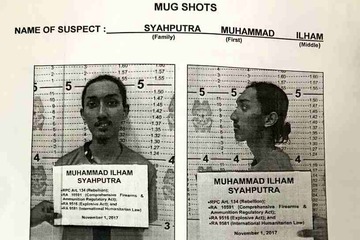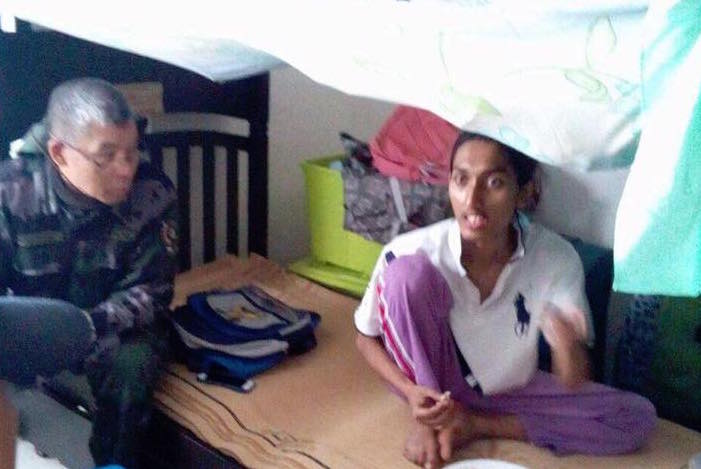Defense Secretary Delfin Lorenzana, former task force head, now shares the vice chair position with Public Works Secretary Mark Villar
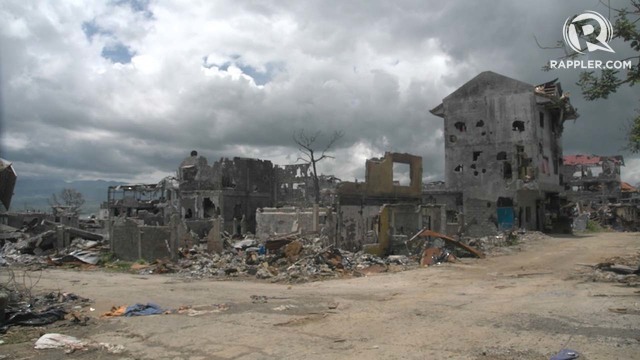
SHIFT IN FOCUS. As the government shifts to full-blown rehabilitation phase for Marawi, President Duterte reorganizes the task force in charge of it
President Rodrigo Duterte has reorganized the task force responsible for Marawi rehabilitation to reflect his administration's priority to "rebuild and develop" settlement areas affected by the 5-month war in the city.
Through Administrative Order No 9, released by Malacañang on Thursday, November 2, Duterte designated housing czar Eduardo del Rosario, a retired military general, as head of Task Force Bangon Marawi.
President Rodrigo Duterte has reorganized the task force responsible for Marawi rehabilitation to reflect his administration's priority to "rebuild and develop" settlement areas affected by the 5-month war in the city.
Through Administrative Order No 9, released by Malacañang on Thursday, November 2, Duterte designated housing czar Eduardo del Rosario, a retired military general, as head of Task Force Bangon Marawi.
It's an amendment of an AO signed in June, creating the task force then headed by Defense Secretary Delfin Lorenzana. At the time, the Marawi conflict was just around a month old.
 Pia RanadaVerified account @piaranada 5 hours ago
Pia RanadaVerified account @piaranada 5 hours ago 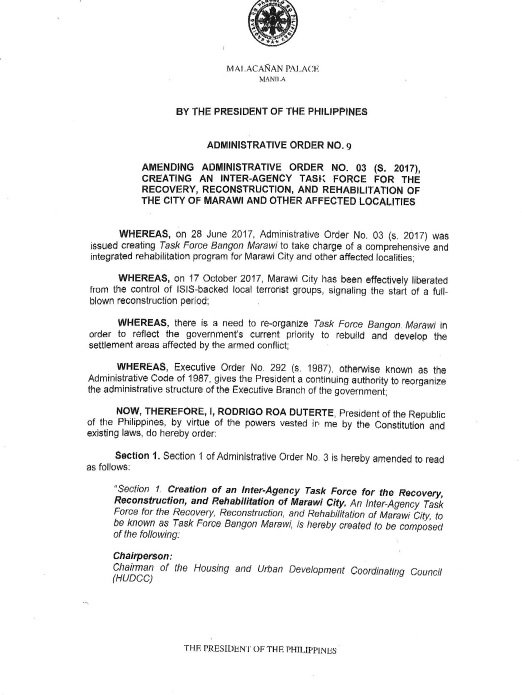
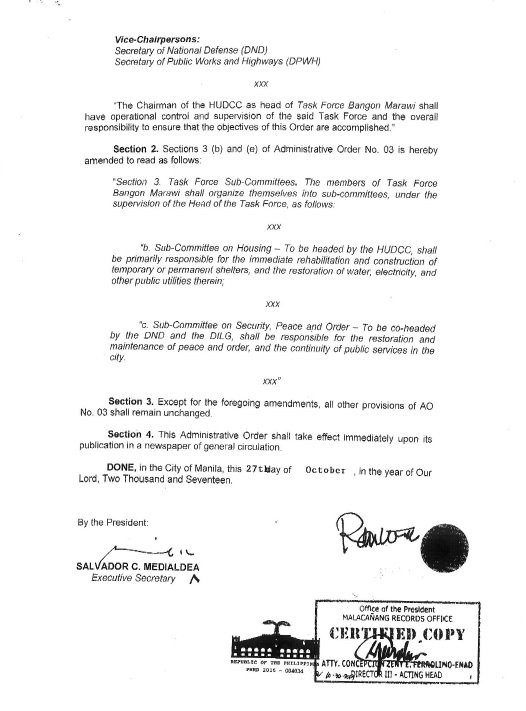
Duterte decided to reorganize the task force "in order to reflect the government's current priority to rebuild and develop the settlement areas affected by the armed conflict," according to the AO.
The defense chief is now co-vice chairman of the task force, along with Public Works Secretary Mark Villar.
The new AO also creates two sub-committees to be supervised by the Housing and Urban Development Coordinating Council (HUDCC) chairperson.
First is the sub-committee on housing, responsible for the construction of temporary and permanent shelters, and the restoration of power, water, and other public utilities. This will be headed by the HUDCC.
Second is the sub-committee on security, peace, and order, to be led by the Department of National Defense and the Department of the Interior and Local Government.
Duterte first announced the new role of Del Rosario in Marawi's rehabilitation in a news briefing in Davao City on Tuesday night, October 31, upon his return from a trip to Japan.
https://www.rappler.com/nation/187129-duterte-reorganizes-task-force-marawi

